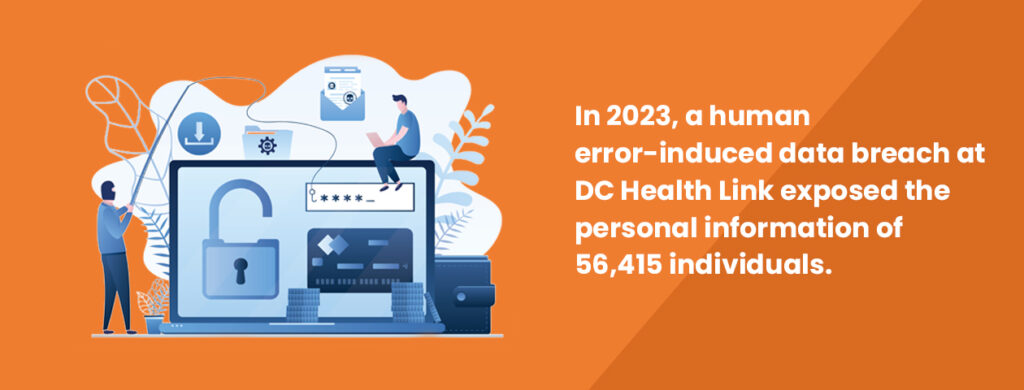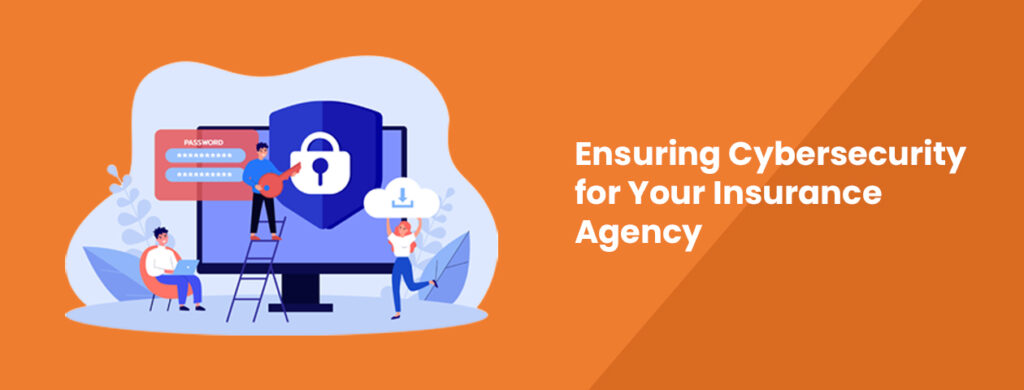In today’s digital age, the significance of cybersecurity for insurance brokers and companies is paramount. As custodians of vast amounts of personally identifiable information (PII), including sensitive financial and health data, insurance agencies are prime targets for cybercriminals. With the cyber threat landscape continuously evolving, insurance professionals must be proactive in their approach to safeguarding both their and their clients’ data. Read on to discover actionable insights and strategies to bolster your cybersecurity defenses.
The Growing Imperative of Cybersecurity in the Insurance Domain
The insurance sector, by its very nature, deals with a plethora of sensitive information. From personal details to financial data, the information that insurance agencies handle daily is a goldmine for cybercriminals. The topic of cybersecurity has gained attention in recent years due to the rise in high-profile data breaches and cyberattacks. In addition to putting client privacy at risk, these breaches carry serious risks including identity theft, reputational harm, company disruption, data restoration expenses, theft of trade secrets or customer lists, and even legal fees.
Understanding the Financial Ramifications of Cyber Threats
The financial consequences of cyber threats are alarming. In 2021 alone, the premiums for cyber insurance surged to an estimated $6.5 billion, marking a significant 61% increase from the preceding year. This figure is not limited to stand-alone cybersecurity insurance products but also includes those policies that bundle cybersecurity insurance with other offerings. The sharp rise in premiums underscores the growing awareness and need for cyber insurance in the face of escalating cyber threats.
Actionable Insights: Bolstering Cyber Defenses
Complete Cyber Insurance
Ensure your cyber insurance policy covers a broad spectrum of threats. In 2017, the WannaCry ransomware attack affected businesses in over 150 countries, causing damages estimated at $4 billion. A comprehensive cyber insurance policy would cover the costs associated with such an attack, including ransom payments, system restoration, and loss of business income.
Employee Training

Human error is a significant cybersecurity risk. In 2023, a human error-induced data breach at DC Health Link exposed the personal information of 56,415 individuals, including Congress members and their associates. A misconfigured server granted unauthorized access to sensitive data, leading to the FBI’s involvement and the eventual discovery of the stolen data being sold online. Regular training can help employees recognize and avoid phishing attempts, use strong passwords, and practice safe online behaviors.
Client Education
Keep your clients informed about potential cyber threats. For example, educate them on identifying phishing emails, which are a common tactic used by cybercriminals to steal login credentials and other sensitive information.
Collaboration with Tech Firms
Work with cybersecurity firms to conduct regular threat assessments and penetration testing. This ensures that your defenses are up-to-date and capable of withstanding the latest cyber threats.
Data Encryption
Encrypt all sensitive data, both in transit and at rest. This adds an additional layer of security, making it more difficult for cybercriminals to access and decipher the information.
Backup and Recovery
Regularly back up essential data and test your recovery processes. In the event of a ransomware attack, having a recent backup can prevent data loss and negate the need to pay a ransom.
Stay Updated
Cyber threats evolve rapidly. Subscribe to cybersecurity bulletins or partner with tech firms to stay informed about the latest threats and countermeasures.
The Role of Regulation and Collaboration
State insurance regulators play a crucial role in combating cyber threats. They monitor insurance companies’ cybersecurity practices, intervene when necessary, and collaborate with federal regulators to address cyber threats. International bodies like the International Association of Insurance Supervisors (IAIS) also contribute to global efforts to enhance cybersecurity in the insurance sector.
The Road Ahead: Charting a Secure Future
Adopting a Proactive Cybersecurity Stance

Conduct regular risk assessments and develop a robust incident response plan. Ensure all employees are well-versed in their roles during a cyber incident.
Investing in Advanced Security Technologies
Utilize next-generation firewalls, antivirus software, and secure access technologies to protect your network and data.
Fostering a Culture of Cybersecurity Awareness
Cultivate a vigilant and responsible workforce and take an active role in client education.
Engaging in Industry Collaboration
Participate in information-sharing forums and ensure compliance with relevant cybersecurity regulations and standards.
Embracing Continuous Improvement
Conduct regular audits, stay open to innovative cybersecurity solutions, and continuously improve your cybersecurity practices.
Partner with Insurance Inbound for a Cybersecure Future
At Insurance Inbound, we specialize in digital marketing for the insurance sector, understanding the unique challenges and opportunities it presents. We are here to help you navigate the complexities of cybersecurity, ensuring that your online presence is not only robust but also secure. Contact us today for a personalized consultation, and let’s work together to protect your agency and your clients in the digital world.
